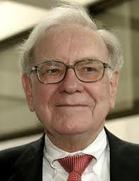
The old saying goes that when in Rome, do like the Romans do, it might just serve you well. At this point you’re probably thinking “I know that saying but so what?” Well, if you are like me, you are not one of the lucky few trotting the globe and visiting Rome all that often. Rather, you spend your every minute here in sunny South Africa enjoying the many things this great country has to offer. At this point I’ll hazard a guess that you, like me, are in a position where it seems the one thing you don’t have much of these days is disposable income. The bottom line is the South African citizen is under considerable financial pressure and it does not seem like there is much hope of things changing any time soon.
Did you know that all of us hold dual citizenship? We are not just a citizens of South Africa we are also citizens of an empire that spans the globe. We are part of the interconnected capitalist economy, or as I like to call it Capitalazia. In Capitalazia the primary medium of exchange is information and the primary driver of value is applied knowledge. Companies like Google, Facebook, Twitter, and Amazon Kindle provide striking examples of how relevant and valuable information exchange has become, but they have just taken the first steps. Further, the forthcoming revolution in 3D printing is a perfect example of applied knowledge in action and it will change the entire world as we know it. Capitalazia is every bit as alive and rich in treasures as any real undiscovered land our forefathers explored in search of wealth and opportunity.
I’ll be the first to admit that the capitalist system is fraught with many problems and challenges, but on the whole it has elevated the poor and oppressed more so than any other ideology ever. Capitalism is a system which allows people to live their dreams, empowers them, and allows for new comforts and prosperity to be created. However, to benefit and prosper in Capitalazia you have to understand the concept of economic group selection - those in the group that best apply knowledge will come out top.
So what does all of this have to do with us? The simple answer is everything! As citizens of South Africa we are all continuously growing poorer and have less and less disposable income. We have to accept that our only chance of turning our situation around is to start “doing like the Capitalazians do”. The speed of our wealth destruction depends on many factors, which includes politics, resource availability, population growth, etc., but also our inability to behave like capitalists. Therefore, to start creating wealth we have to focus on that last factor because all the other are largely exogenous we can’t do much about.
The good news is that as far as I know capitalists don’t have any secret success recipes. They simply accept full responsibility for their own financial futures. They use their brains to generate ideas. They surround themselves with other people who think like they do and exchange and refine their ideas with those people. They think long-term. Finally, they apply their ideas.
There it is. The secret is out. All you have to do is manage your emotions and follow the steps of the recipe. Step one is the hardest. If you can overcome your fears and anxieties and take this giant leap you’re on your way to becoming a successful citizen of Capitalazia. The easiest way I know to take step one is to mimic an alcoholic who joins AA. In other words, ignore your fears and reservations and join capitalist anonymous, or as I prefer to call it, an investment club. Group dynamics tell us that once you have found this group of likeminded capitalist citizenry your chances of achieving success increases dramatically as compared to a lone ranger.
Step two is to switch on your brain, start generating ideas and applying your knowledge. If this takes you back to your high school math class then relax. That kind of smart is not the only kind of smart that is rewarded in Capitalazia. You’re not expected to dream up the next iPod or invent a cure for cancer. Rather think applied knowledge in the form of Warren Buffett and Value Investing. He did not invent Value Investing, but he used healthy reasoning, logic and applied knowledge to benefit from long-term investing. Even though he never invented a cure for cancer I would say he did OK.
So where is the catch you ask? Well, to invest you need money, but now we are back to where we started and the lack of disposable income. If you think this is the major stumbling block in the entire argument then you would not be alone, but you would be wrong. Every member that has ever joined our investment club feels the same way, but not for long. Once you start thinking and studying wealth creation you naturally start participating and contributing to the group and then a strange thing happens. You pick up ideas about how to creatively find the resources you need to invest. You actively start applying your mind and either start saving or generating disposable income, which allows you to invest towards wealth creation.
Therefore, just like a gym partner helps you stay focussed and motivates you to hit the gym rather than the couch, so too your investment club will help you stay focussed. There are many benefits to joining a club. For instance, in an investment club you don’t have to do all the thinking and applying yourself. Also, people that pool their reasoning usually make far better decisions, are less emotionally volatile, and more likely to take action, than the lone rangers that keep their ideas to themselves. The bottom line is that by surrounding yourself with fellow capitalists working towards reaching the top, you will start acting more like a capitalist yourself, and this might just serve you well.
Did you know that all of us hold dual citizenship? We are not just a citizens of South Africa we are also citizens of an empire that spans the globe. We are part of the interconnected capitalist economy, or as I like to call it Capitalazia. In Capitalazia the primary medium of exchange is information and the primary driver of value is applied knowledge. Companies like Google, Facebook, Twitter, and Amazon Kindle provide striking examples of how relevant and valuable information exchange has become, but they have just taken the first steps. Further, the forthcoming revolution in 3D printing is a perfect example of applied knowledge in action and it will change the entire world as we know it. Capitalazia is every bit as alive and rich in treasures as any real undiscovered land our forefathers explored in search of wealth and opportunity.
I’ll be the first to admit that the capitalist system is fraught with many problems and challenges, but on the whole it has elevated the poor and oppressed more so than any other ideology ever. Capitalism is a system which allows people to live their dreams, empowers them, and allows for new comforts and prosperity to be created. However, to benefit and prosper in Capitalazia you have to understand the concept of economic group selection - those in the group that best apply knowledge will come out top.
So what does all of this have to do with us? The simple answer is everything! As citizens of South Africa we are all continuously growing poorer and have less and less disposable income. We have to accept that our only chance of turning our situation around is to start “doing like the Capitalazians do”. The speed of our wealth destruction depends on many factors, which includes politics, resource availability, population growth, etc., but also our inability to behave like capitalists. Therefore, to start creating wealth we have to focus on that last factor because all the other are largely exogenous we can’t do much about.
The good news is that as far as I know capitalists don’t have any secret success recipes. They simply accept full responsibility for their own financial futures. They use their brains to generate ideas. They surround themselves with other people who think like they do and exchange and refine their ideas with those people. They think long-term. Finally, they apply their ideas.
There it is. The secret is out. All you have to do is manage your emotions and follow the steps of the recipe. Step one is the hardest. If you can overcome your fears and anxieties and take this giant leap you’re on your way to becoming a successful citizen of Capitalazia. The easiest way I know to take step one is to mimic an alcoholic who joins AA. In other words, ignore your fears and reservations and join capitalist anonymous, or as I prefer to call it, an investment club. Group dynamics tell us that once you have found this group of likeminded capitalist citizenry your chances of achieving success increases dramatically as compared to a lone ranger.
Step two is to switch on your brain, start generating ideas and applying your knowledge. If this takes you back to your high school math class then relax. That kind of smart is not the only kind of smart that is rewarded in Capitalazia. You’re not expected to dream up the next iPod or invent a cure for cancer. Rather think applied knowledge in the form of Warren Buffett and Value Investing. He did not invent Value Investing, but he used healthy reasoning, logic and applied knowledge to benefit from long-term investing. Even though he never invented a cure for cancer I would say he did OK.
So where is the catch you ask? Well, to invest you need money, but now we are back to where we started and the lack of disposable income. If you think this is the major stumbling block in the entire argument then you would not be alone, but you would be wrong. Every member that has ever joined our investment club feels the same way, but not for long. Once you start thinking and studying wealth creation you naturally start participating and contributing to the group and then a strange thing happens. You pick up ideas about how to creatively find the resources you need to invest. You actively start applying your mind and either start saving or generating disposable income, which allows you to invest towards wealth creation.
Therefore, just like a gym partner helps you stay focussed and motivates you to hit the gym rather than the couch, so too your investment club will help you stay focussed. There are many benefits to joining a club. For instance, in an investment club you don’t have to do all the thinking and applying yourself. Also, people that pool their reasoning usually make far better decisions, are less emotionally volatile, and more likely to take action, than the lone rangers that keep their ideas to themselves. The bottom line is that by surrounding yourself with fellow capitalists working towards reaching the top, you will start acting more like a capitalist yourself, and this might just serve you well.

 RSS Feed
RSS Feed